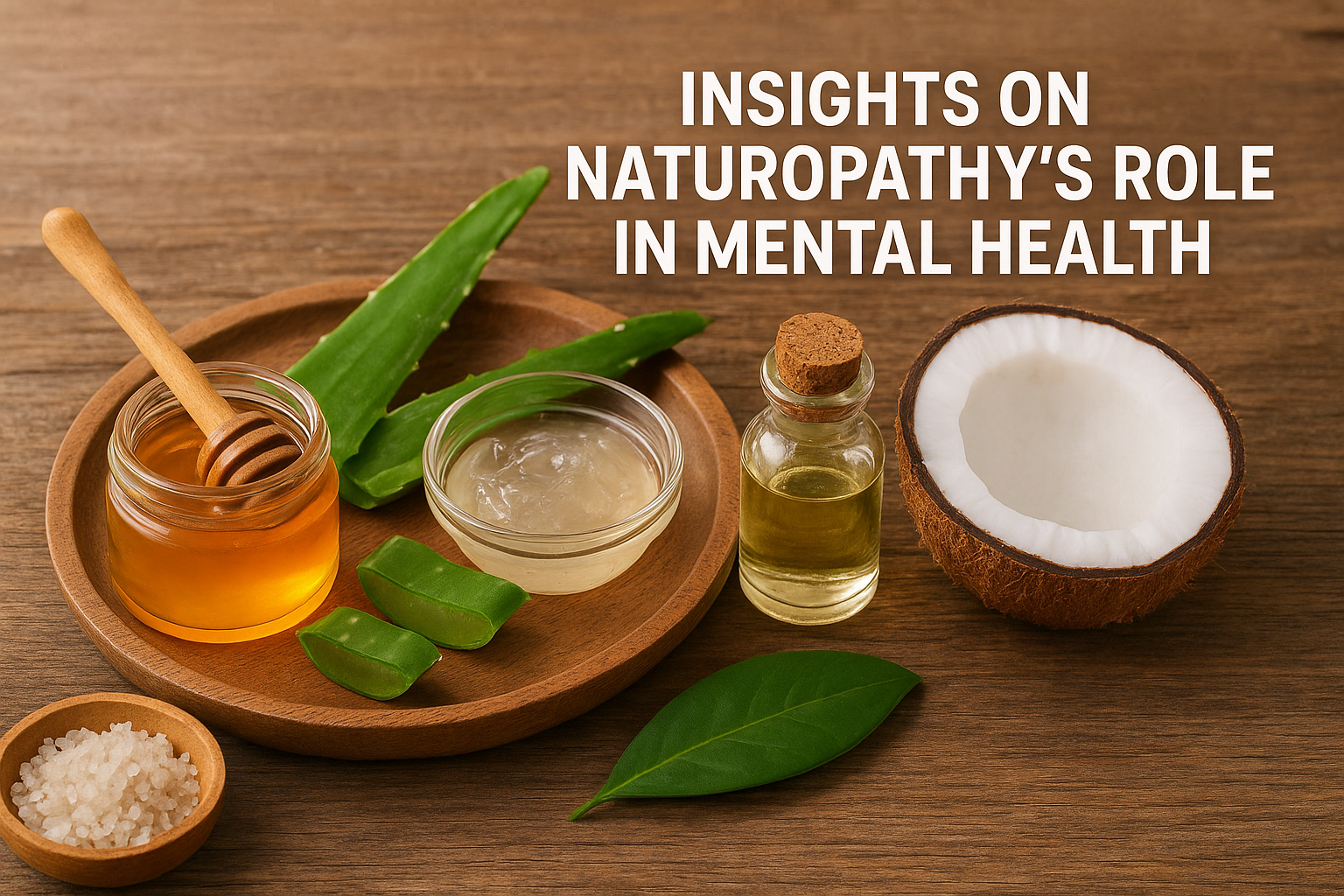Introduction: The Rising Connection Between Naturopathy and Mental Health
Mental health has become a global focus in recent years — and 2025 marks a turning point in how we approach it. Beyond medication and therapy, many individuals are turning to naturopathy, a holistic healing system that emphasizes balance between the body, mind, and nature.
Naturopathy integrates natural therapies, herbal remedies, and lifestyle modifications to treat not just symptoms, but the root causes of mental and emotional imbalance. This approach is gaining momentum worldwide as people seek sustainable, non-invasive ways to enhance mental clarity, stress management, and emotional resilience.
Let’s explore how naturopathy supports mental health and the emerging trends shaping holistic wellness in 2025.
1. Understanding Naturopathy: A Whole-Person Healing System
Naturopathy is based on the principle that the body has an inherent ability to heal itself when supported by natural means.
Core Principles of Naturopathy
- The Healing Power of Nature – Supporting the body’s self-healing capacity.
- Identify and Treat the Root Cause – Addressing the underlying imbalances, not just the symptoms.
- Holistic Approach – Treating mind, body, and spirit as interconnected.
- Prevention First – Focusing on lifestyle and nutrition to avoid illness.
In mental health, this means nurturing emotional equilibrium, mindfulness, and physical vitality to create lasting well-being.
2. The Mind–Body Connection: How Naturopathy Enhances Emotional Wellness
Naturopathy views mental health not as an isolated issue but as a reflection of total body harmony. When the digestive system, hormones, and sleep cycles are balanced, the mind naturally stabilizes.
Key Natural Therapies Supporting Mental Health
- Herbal Medicine: Adaptogens like Ashwagandha, Brahmi, and Rhodiola Rosea reduce anxiety and improve focus.
- Hydrotherapy: Warm water baths and contrast showers promote relaxation and stress relief.
- Aromatherapy: Essential oils such as lavender and chamomile calm the nervous system.
- Nutritional Therapy: Whole foods rich in omega-3s, magnesium, and B vitamins support brain health.
🧘 Insight: Regular naturopathic therapies improve serotonin regulation and reduce cortisol, enhancing mood and energy naturally.
3. Lifestyle Balance: The Naturopathic Way to Emotional Stability
Modern life often triggers chronic stress, burnout, and anxiety. Naturopathy emphasizes the importance of daily lifestyle practices that restore mental peace and balance.
Naturopathic Lifestyle Recommendations
- Mindful Routine: Begin each day with yoga, meditation, or deep breathing.
- Nature Exposure: Spend 20–30 minutes outdoors to reduce anxiety and improve mood.
- Sleep Hygiene: Go to bed before 11 PM and maintain a consistent sleep schedule.
- Digital Detox: Limit screen time to protect mental focus.
🌿 Pro Tip: Naturopaths often recommend grounding exercises (walking barefoot on grass) to stabilize emotional energy
4. Naturopathy and Stress Management: Nature’s Calming Touch
Stress is one of the leading causes of mental health issues today. Naturopathy uses nature-based methods to regulate the body’s stress response naturally.
Holistic Stress-Relief Techniques
- Breathing Therapy (Pranayama): Calms the nervous system and improves oxygen flow.
- Massage and Acupressure: Releases muscle tension and promotes relaxation.
- Herbal Teas: Chamomile, tulsi, and lemon balm teas soothe anxiety.
- Detoxification: Gentle cleansing through diet and herbs removes toxins that affect mood.
💧 Fun Fact: A 2025 study showed that individuals following naturopathic stress-management routines reported 40% lower anxiety levels than those using only conventional therapy.
5. 2025 Trends: Naturopathy’s Expanding Role in Mental Health Care
As mental health awareness grows, integrative and naturopathic therapies are entering mainstream healthcare.
Key 2025 Trends
- 🧠 Mind–Body Clinics: Hospitals and wellness centers integrating naturopathic and psychological therapies.
- 🌱 Personalized Herbal Programs: DNA-based herbal prescriptions for stress and mood balance.
- 💻 Digital Naturopathy: Virtual consultations for holistic mental health guidance.
- 🌍 Eco-Therapy Retreats: Nature immersion programs focusing on emotional detox and mindfulness.
These innovations demonstrate how naturopathy is shaping the future of mental wellness, blending ancient healing wisdom with modern research.
Conclusion: Restoring Peace Through Nature’s Wisdom
Naturopathy offers a gentle yet powerful path to mental harmony and emotional health. By aligning natural therapies with mindful living, it helps individuals build resilience, reduce stress, and rediscover inner calm.
As we step into 2025, embracing naturopathy means embracing a lifestyle of balance, awareness, and holistic healing — where mind and nature work together to nurture true wellness.
✨ Nature heals not just the body, but the mind that sustains it.
FAQs
1. Can naturopathy replace psychiatric treatment?
No. Naturopathy complements — not replaces — conventional mental health care. It supports recovery and prevention through holistic methods.
2. Which herbs are best for stress and anxiety?
Ashwagandha, Brahmi, Chamomile, and Rhodiola Rosea are top naturopathic herbs for reducing stress and improving mood.
3. Is naturopathy safe for everyone?
Generally, yes. However, consult a certified naturopath before starting herbal supplements, especially if you’re on medication.
4. How long before naturopathic remedies show results?
Visible mental clarity and emotional balance often appear within 2–4 weeks of consistent practice.
5. What’s the best way to start a naturopathic mental health routine?
Begin with daily mindfulness, herbal tea, balanced diet, and 7–8 hours of sleep. Small changes can lead to big results.

